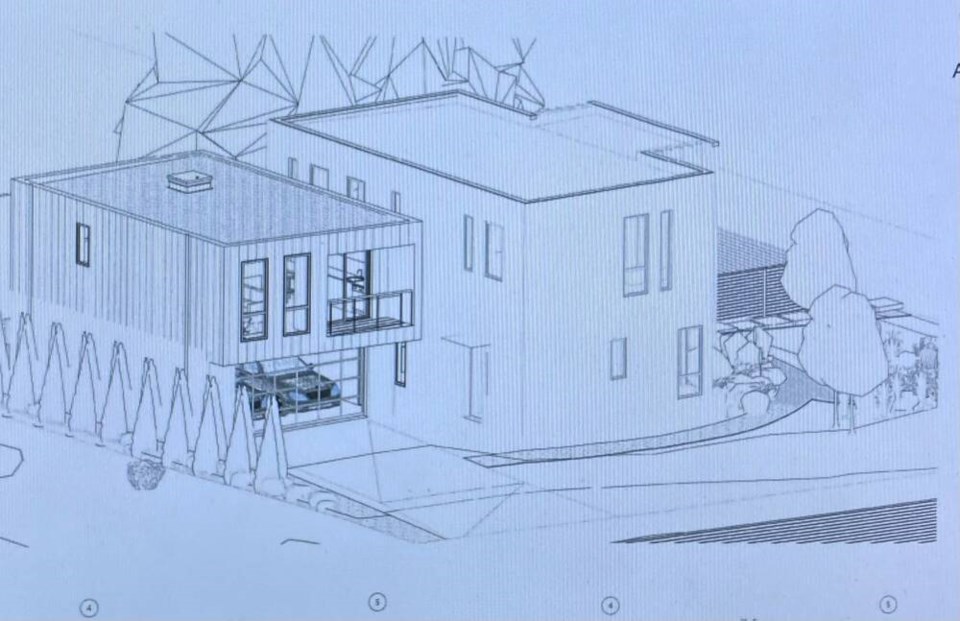Delta council this week approved sending an application to build a coach house in Tsawwassen to a public hearing, but such applications will likely soon not have to go through such a process.
The Official Community Plan (OCP) and zoning amendment would see the coach house added to a property which contains an existing single-family dwelling on the corner of 66A Street and 1A Avenue. The 905-square-foot addition would be added above and existing garage on the property.
A report to council notes that the proposal is consistent with Delta’s Housing Action Plan strategy in creating opportunities for gentle density, allowing for detached suites, establishing further opportunities for coach home development and exploring the possibility of excluding the coach home from the unit density calculation currently applied to coach homes.
The action plan also calls for the city to incorporate gentle density policies and land use designations into a new OCP for Delta, with the aim to create a more consistent approach to single-detached neighbourhoods.
According to the city’s planning department, OCP and zoning bylaw allow for secondary suites, including suites in duplexes, but they generally do not allow other forms of accessory dwelling units such as detached garden suites or coach homes, except through rezoning and in most cases OCP amendments.
A report by the planning department notes changing the OCP to allow such units as-of-right would enable “the construction of new dwelling units, with the potential opportunity for home ownership of smaller, more affordable units. This action would also open up a broader range of housing options for those requiring it, such as seniors, adults with disabilities, students seeking independent living arrangements, and others.”
The City of Delta, which has been given a housing target by the B.C. government, will have to update its OCP regardless as the province’s housing legislation, the Housing Statutes (Residential Development) Amendment Act (Bill 44), will require cities to update their zoning bylaws by June 30, 2024. The new zoning is to permit small-scale, multi-unit housing on all lots currently zoned for detached single-family or duplex uses.
City’s will also have to come up with new housing needs assessments which will be the basis for reviewing and updating each municipality’s OCP by Dec. 31, 2025.
By January 1, 2025, all local governments will need to complete an interim housing needs report and estimate housing needs for a 20-year time frame. Municipalities will need to update their OCPs every five years to reflect the most recent housing needs reports, as well as align their zoning bylaws by pre-zoning for the 20-year total amount of housing units identified.
A report by Delta’s planning department notes that, given the number of topics that would require OCP amendments, staff propose to seek efficiencies and an expedited process by preparing a concurrent, city-wide OCP update. Staff have begun reviewing the residential land use designations and identifying necessary updates and will bring forward a more detailed work plan for consideration in 2024.
A recent Metro Vancouver report notes the requirement that zoned capacity be introduced for 20-years of residential development will largely move local governments away from discretionary approvals and toward as-of-right approvals.
The report adds that successful implementation will require the development of many new policies, plans, studies, strategies and bylaws, but in many cases the timelines outlined will be insufficient to realize the scale of change to local regulations that is envisioned.



